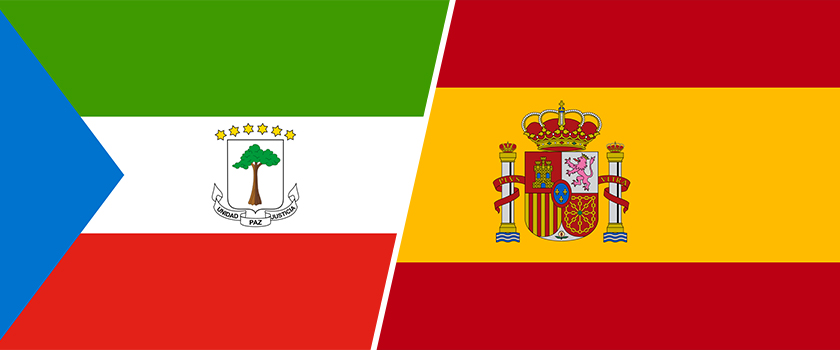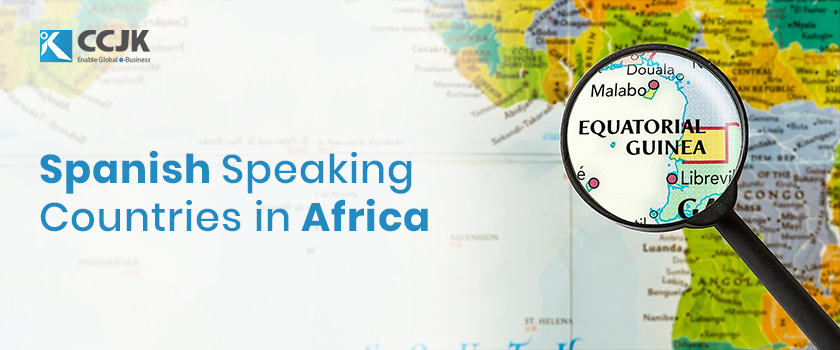The language of a country is its way of communication with the outside world. While there are more than 7000 languages in the world today, not all languages are influential and widely spoken. The Spanish language, however, is one such language that has a huge population worldwide. As immigration and awareness about the Spanish language increase, so does its influence. In fact, the Spanish language is second only to Chinese in terms of the most spoken languages in the world. The African continent, with its estimated 2000 languages, is a region well-known for its diverse languages and dialects. There are many Spanish-speaking countries in Africa. In addition, the African continent has a lot to offer when it comes to exploring linguistic variations.
There are approximately 450 million Spanish speakers in the world today. While most of these speakers are in the Americas and Asia, there are also Spanish speakers in Africa.
Here is a brief look at which countries speak Spanish in Africa. But before that, let’s shed some light on the languages of Africa.
Table of Content
- The Languages of Africa
- Which African Countries Speak the Spanish Language?
- Equatorial Guinea—A Spotlight
- Spanish and Equatorial Guinea—a Brief History
- Position of the Spanish in Equatorial Guinea
- The Use of Spanish in Equatorial Guinean Households
- Future of the Spanish Language in Equatorial Guinea
- The Last Word
The Languages of Africa
It’s said that every language in Africa has an influence on aboriginal and ancient tribes’ languages. The African continent is well-known across the world for housing the world’s earliest known civilizations and languages. To this day, many indigenous languages are still in use. While only native languages are recognized in some parts of the continent, other countries have witnessed an extinction of these languages over the years.
The language of at least 14 Central African and Sub-Saharan African countries is Modern Standard Arabic. Moroccan Arabic is the most popular Arabic dialect in the continent, in addition to Hassaniya Arabic. Various Bantu languages are also a part of the language pie in Africa. This is because these Bantu languages are the national languages of countries where Bantu tribes make up the majority. These languages have a wide range of dialects and reflect the rich heritage of the Bantu people. Their contribution to the linguistic fabric of Africa is also huge.
Modern Standard Arabic is not just confined to the African continent. It’s the mother tongue of the whole Arab population including Saudi Arabia and the Middle East. In addition, the people of Africa speak several Creole languages. These Creole languages appeared on the scene after the African languages and European languages fused together during times of colonization. Widely popular throughout Africa, the Creole languages show very clearly the adaptability and resilience of the linguistic traditions in the continent.
In essence, the continent of Africa represents itself as a region that has ensured the power of language to a great extent. Being home to diverse ethnic groups and old civilizations, it embraces a plethora of languages. These languages have no doubt played a vital role in shaping the cultural landscape of the continent.
Which African Countries Speak the Spanish Language?
According to an estimate, there are approximately 572 million people worldwide who speak the Spanish language as a second language. Moreover, 19 countries in the Americas have Spanish as the official language.
Africa, the second-largest continent, is home to 1.2 billion people who speak different languages and have come from different linguistic backgrounds.
The African region is the epicentre of some of the oldest languages in the world and Africans speak various indigenous languages to this day. However, there are many languages in Africa that now face extinction due to the popularity of English and French languages.
Morocco is a country that speaks Spanish to some extent—Spanish is not the official language there. The national languages of Morocco are Standard Arabic, Moroccan Arabic, and Berber. Many Moroccans, especially those situated in the northern regions use Spanish on a daily basis.
This may be due to the area’s proximity to Spain and the business interactions which take place between the two countries.
With Morocco as a country that speaks Spanish as a second language, the question here arises—are there many Spanish speaking countries in Africa, and which countries speak Spanish as its official language?
The answer is yes—only one!
Equatorial Guinea—A Spotlight
Equatorial Guinea is the only country located in Africa that has Spanish as its official language. Situated in Central Africa occupying an area of 11,000 square miles, Equatorial Guinea has a population of 1.4 million. The country is well-known for its oil production and has the highest per capita income in the entire African continent.
The Spanish language is one of the official languages of Equatorial Guinea. Other than Spanish, the official languages of the country are French and Portuguese along with minority languages. However, there is a slight difference between the Spanish dialects in South America and Spain, and Equatorial Guinea. The Spanish here is Equatoguinean Spanish. Which showcases a mix of Spanish with African cultural elements and other local languages. This mix has resulted in a unique character and flavour that distinguishes it from its South America and Spain counterparts.
The Spanish language has been around in Equatorial Guinea since 1844 when it became the official language of the country. Today, about 67% of the population in the country speaks the Spanish language. Although French had been introduced to have a better resemblance to its neighbouring French nations, not everyone speaks it.
Spanish and Equatorial Guinea—a Brief History

In 1472, the Europeans first came to the region now known as Equatorial Guinea. The Portuguese explorer Fernando Po was the first European to arrive at Bioko Island. The Portuguese people colonized the island, but their effort did not really bring any fruit.
The treaty of El Pardo in 1778 was signed and the region was handed over to Spain. However, the Spanish were hesitant to take hold of the Island and began to use it only for hunting purposes. With the Spanish abolishment of Slavery, the island became less of use for the Spanish people, who began to use it only for plantations. As diseases spread on the Island, many of the Spanish people fell prey to death, and the island was left to slaves, African immigrants, Filipinos, Jews, and some Spaniards.
With so many people of different backgrounds residing in one area, the region began to experience linguistic diversity. The island of Bioko and Rio Muni united to become Spanish Guinea. It gained independence in 1968 and established itself as Equatorial Guinea.
In the African region of Equatorial Guinea, around 90% of the population speaks Equatoguinean Spanish, while 68% of them are native speakers. Furthermore, the dialect of Equatoguinean Spanish is slightly different from the Spanish that people in Spain speak. In addition, various indigenous groups exist in Equatorial Guinea such as Bobi, Igbo, and Ndowe, speaking their own native languages.
Position of the Spanish in Equatorial Guinea
The Spanish language is a “metropolitan” language, due to its use by both rural and urban citizens of Equatorial Guinea. Compared to other Central African countries, Equatorial Guinea contains a high proportion of proficient speakers of the Spanish language.
While colonial education resides in the hands of missionary groups, the government of Spain plays a huge part in imparting education in the Spanish language. In the region of Fernando Poo, almost all natives speak Spanish with fluency. But a few residents have limited fluency in this language due to their less interaction with Spanish. On the island of Annobon, people hardly use Spanish for daily communication.
Instead, the residents of Annobon Islands speak a Portuguese-derived creole language resembling the dialects of Sno Tome and Principe. In Rio Muni, nearly everyone speaks Spanish, except the people who live in isolated areas away from schools and government centres.
The Use of Spanish in Equatorial Guinean Households
While it is difficult to exactly measure the proportion of Equatorial Guineans who are fluent in Spanish, some findings are still valid. In Fernando Poo and the urban areas of Rio Muni, there exists a high percentage of Spanish speakers—90%. Even in the interior parts of Rio Muni, this figure is no less than 60-70%. This makes Equatorial Guinea one of the few African nations which have successfully adopted a metropolitan language as a means of national communication.
However, one thing to note here is that not even one citizen of Equatorial Guinea is a monolingual speaker of the Spanish language. This is because they speak Spanish in the first years of their home environment. Many of them exclusively speak it at home, while encouraging their children to speak it too. On the contrary, some interactions with Equatorial Guinean households show that Spanish is mixed freely with the indigenous languages of Africa for daily communication.
Although many Equatorial Guineans speak Spanish fluently, it is not widely popular in day-to-day communications. In Equatorial Guinean households, people mix Spanish with Pidgin English, particularly in those households where there are multi-ethnic marriages.
Even then, they use the Fang language for daily communication. All government and formal activities are executed in Spanish, despite the country having a horde of native languages to choose from. Although these languages are also used for formal communication, their use is limited as compared to the Spanish language, which occupies the top status as a formal language of communication.
Future of the Spanish Language in Equatorial Guinea
The Spanish language continues to enjoy a respectable existence in Equatorial Guinea, which sets it apart from other African countries. The post-colonial linguistic evolution similar to Equatorial Guinea has hit other nations too. But the Spanish language has grown in this country over the years.
The reasons for this may be difficult to recognize, but one thing that stands out clearly is the quest for national identity—the fact that it is the only Spanish-speaking country in the middle of other countries speaking French, Portuguese, and English. Equatorial Guinea may be a tiny nation throwing off the effects of post-colonialism, but it is carving out a national identity of its own.
The future is bright for the Spanish-speaking population in Equatorial Guinea. This is because, with modernization and immigration, the number of Spanish speakers is increasing day by day. In addition, the educational system of Africa is conducive to the growth of languages such as Spanish. All these factors may contribute to the growth and popularity of the Spanish language in Equatorial Guinea and beyond that.
The Last Word
The Spanish language may be one of the most popular languages in the world, but in Africa, it is present on a limited scale. This may be attributed to the presence of indigenous and native languages, all of which are in use today. Considering the Spanish-speaking countries in Africa, it is evident that the Spanish language holds significant importance in the government and judicial circles of Equatorial Guinea. While the Spanish language is associated with being a “metropolitan” language, it is still a thriving one in Equatorial Guinea.
If you are a tourist exploring Equatorial Guinea, or a business entity stepping into the highly lucrative Equatorial Guinean market, chances are you would want to get acquainted with the Spanish language. To make this possible, the support and help of expert language service providers are a must. A professional language service provider makes sure to translate and localize all your content in the Spanish language. While delivering your accurate language translation in Spanish, these LSPs would ensure your business is culturally and linguistically capable of meeting the demands of the African market.
A professional language translation service in Spanish is what you really need to kick-start your journey in the African market. contact us to register your quote and start your journey today!
Read More:
- What is the Easiest way to Learn Spanish?
- Which African Countries Speak Good English in the World?
- Data of the Middle East And North Africa Game Market
- How Many People Speak the Spanish Language
- Most Spoken Languages in the World in 2021
- 10 Common Challenges Spanish Speakers Have When Learning English
- English Speaking Countries in Africa



